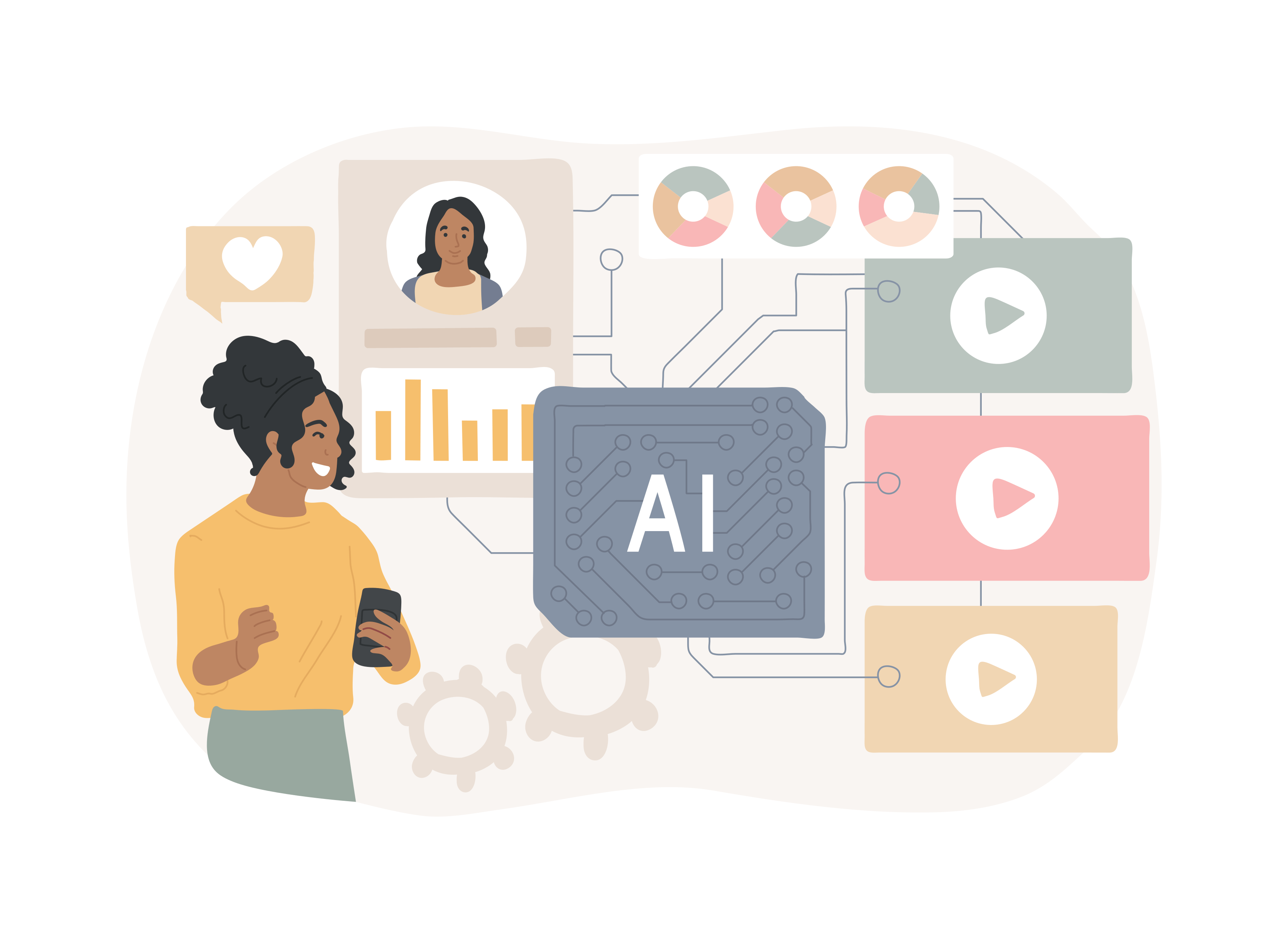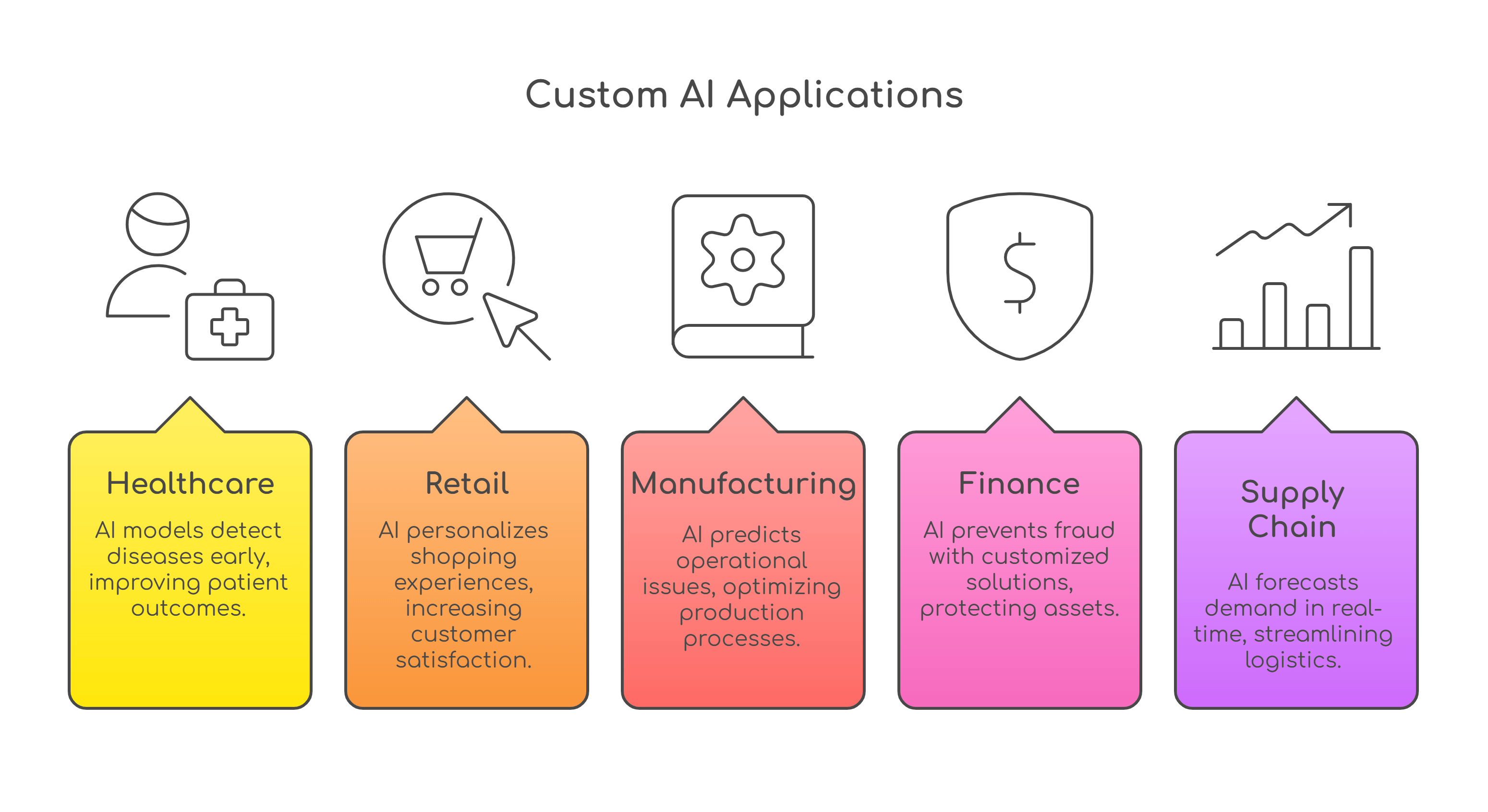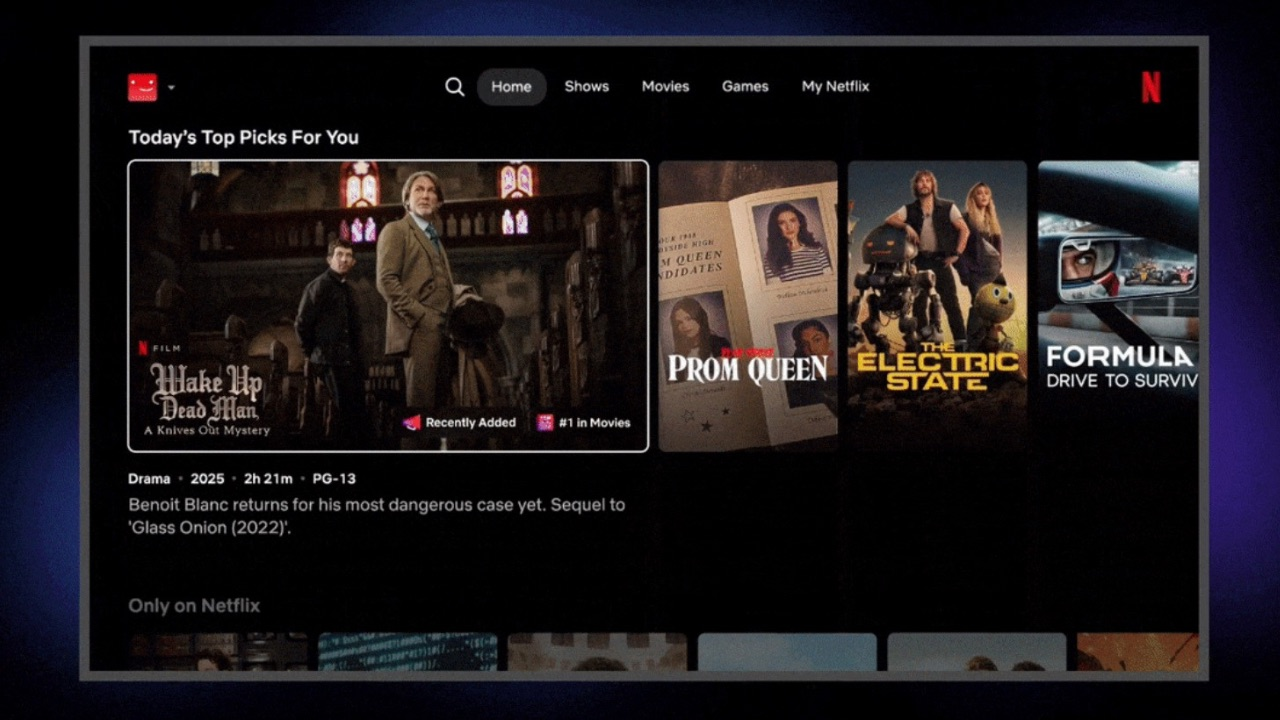
Meet us at Bengaluru Tech Summit in Hall No. - 1, Booth no. - C58

Artificial intelligence is no longer a futuristic concept, it’s a business necessity. The rise of generative AI (Gen AI) has transformed it from a buzzword into a defining force reshaping industries at every level. What was once viewed as an experimental technology is now a key driver of competitiveness, innovation, and efficiency across the global economy.
Artificial intelligence has been quietly weaving itself into our everyday lives for years, like in the smartphones we rely on, the cars that assist us on the road, and the recommendation engines that anticipate our next purchase. This gradual integration has made its progress feel almost invisible. Even remarkable milestones, like DeepMind’s AlphaGo defeating a world champion in 2016, were celebrated briefly before fading from public memory.
Generative AI, however, has changed that. Tools like ChatGPT, GitHub Copilot, and Meta have made AI accessible, relatable, and, for the first time, truly interactive. Unlike earlier custom AI solutions and systems that worked quietly in the background, these tools allow anyone to communicate, create, and collaborate with machines in real time. They can write essays, compose songs, design graphics, and even analyze data, all at a scale and speed previously unimaginable.
Their creative and conversational abilities have sparked global curiosity, pushing generative AI into homes, classrooms, and boardrooms alike. But with this widespread adoption comes confusion and debate, as businesses, policymakers, and individuals all try to understand what this technology means for the future of work, creativity, and society at large.
Adding to the complexity is the rapid pace of innovation. In just a few months, capabilities that once seemed extraordinary have become the new normal. OpenAI’s ChatGPT, launched in November 2022, was followed by GPT-4 just four months later, offering far more advanced reasoning and understanding. Around the same time, Anthropic’s Claude evolved from processing 9,000 tokens of text to 100,000, equivalent to reading a full-length novel in under a minute. Google also entered the race with its PaLM 2 model and new generative features across its products, further accelerating the AI revolution.
This rapid evolution didn’t happen overnight. It’s the result of decades of progress in data science, computing power, and neural network design, all converging to create a new generation of AI that can learn, reason, and create like never before. Understanding these foundations is key to grasping where generative AI is headed next, and how it will continue to redefine industries, creativity, and human potential itself.
According to McKinsey, Gen AI could add between $2.6 trillion and $4.4 trillion to the global economy each year, amplifying the overall impact of artificial intelligence by 15 to 40%.
In the technology, media, and telecommunications (TMT) sector alone, the potential impact is staggering, ranging from $380 billion to $690 billion annually. That includes $60-100 billion in telecommunications, $80-130 billion in media, and as much as $240-460 billion in high tech. The message is clear: in the next few years, anything not integrated with AI will likely fall behind.
While some organizations are already moving fast to scale Gen AI, others are still experimenting or figuring out where to begin. But to stay relevant and competitive, leaders must act now. Embracing Gen AI isn’t about experimenting with tools, it’s about driving an AI-native transformation, where AI becomes deeply woven into business strategy and daily operations.
At Antino, our ongoing research and collaborations with clients have identified more than 100 Gen AI use cases across more than seven business domains. The biggest impact so far has been seen in FinTech, which could together account for around 70% of the total value. These areas are already witnessing major improvements in personalization, campaign performance, and time-to-market, with potential revenue growth of 3–5% through custom AI solutions.
But while the opportunities are vast, the real challenge lies beyond identifying use cases. The key is execution, moving from pilots to scaled, organization-wide adoption that captures measurable business impact. Digital transformation has taught leaders valuable lessons about change, but Gen AI’s pace of disruption demands a new mindset, one that’s bold, adaptive, and ready to lead the future now.

Organizations today are spoiled for choice when it comes to adopting artificial intelligence. Yet one critical decision often shapes the success of the entire AI journey: whether to deploy a custom-built solution or leverage existing tools already available in the market. These two approaches are fundamentally different in terms of strategy, scalability, and impact. The right choice always depends on how unique your business challenges are and how ambitious your transformation goals are.
Custom AI is engineered specifically for your operational realities and your future roadmap. It digs deep into proprietary data, tailors intelligence to niche workflows, and strengthens differentiation where it matters most. Businesses opting for custom solutions typically seek transformation rather than incremental improvement. They prioritize seamless system integration, long-term scalability, and model adaptability as business conditions shift.
• End-to-end AI platforms curated for industry-specific needs
• Bespoke machine learning and deep learning models
• Private LLMs trained on proprietary datasets
• AI-driven automation customized for internal processes
• Predictive intelligence engines built around business KPIs
When done right, custom AI becomes a strategic asset closely tied to revenue impact, operational resilience, and sustained competitive advantage.
Existing AI solutions, including off-the-shelf AI platforms and pre-trained models, offer rapid and cost-efficient adoption. They address common use cases that most organizations encounter in their day-to-day operations. The value lies in simplicity: lower implementation effort, pre-built intelligence, and faster value realization.
• Software-as-a-Service (SaaS) AI products like chatbots and analytics tools
• Pre-trained vision, language, or speech models
• Market-ready automation and workflow solutions
• AI-powered APIs integrated into existing systems
• Sector-agnostic insights or recommendation engines
These tools are highly impactful during early AI maturity or where processes are standard and don’t need heavy customization. The trade-off is flexibility. They may not fully address unique business complexities or fuel differentiation in a highly competitive market.
The smartest organizations align their AI strategy with where they expect impact. Some needs call for precision-engineered intelligence, while others benefit from speed and standardization. Understanding the nature of your use case helps you select the investment with the highest ROI.
Here’s a structured comparison to guide that decision.
When is Custom AI the smarter choice?
• A fintech firm building a fraud detection engine tailored to local transaction behavior
• A retailer developing hyper-personalized recommendations using its own loyalty data
• A logistics company optimizing route planning with proprietary supply chain patterns
In each case, the AI solution becomes a growth lever, not just a tool.
When do existing AI solutions win faster?
• Deploying a chatbot for customer support using SaaS conversational AI
• Automating invoice data extraction with pre-trained document processing models
• Using out-of-the-box analytics dashboards for basic forecasting
These scenarios benefit from speed and don’t require costly reinvention of the wheel.
Custom AI becomes transformational when it is designed to elevate the core levers of a business. Rather than applying generic intelligence, it strengthens the parts of the organization that drive differentiation, efficiency, and long-term resilience. These are the high-impact arenas where custom AI consistently delivers outsized value…

Every company has hidden intelligence inside its private data. Custom models are trained to recognize patterns no competitor has access to, converting exclusive data into unique business insights. This unlocks the value that off-the-shelf solutions simply cannot surface.
Industries like healthcare, manufacturing, and BFSI demand precision tailored to regulation and risk. Custom AI optimizes the nuances in these systems, reducing operational friction and enabling smarter decisions inside mission-critical workflows.
Modern relationships thrive on relevance. Tailored recommendation engines, dynamic pricing systems, and individualized experience layers built with custom AI deepen engagement and increase lifetime value in ways generic models can’t replicate.
Most existing tools handle routine automation. The real efficiency boost comes when AI is designed to automate tasks deeply embedded in a company’s unique operating model, eliminating manual work that has historically been “too complex to automate.”
Custom-built intelligence becomes part of the product DNA. It evolves as the business evolves, strengthening the moat over time rather than eroding into a commodity capability available to everyone.
Control matters. From data residency to model explainability, custom AI aligns with enterprise-grade compliance while ensuring systems stretch and scale with growth, new geographies, and new revenue pathways.
Custom AI has already moved from experimentation to enterprise value creation across industries. The most innovative businesses are integrating AI directly into their core operations, reshaping how they deliver products, manage risk, and serve customers. These real-world cases highlight how custom intelligence becomes a true growth engine:

Hospitals are deploying custom-trained diagnostic systems that analyze medical images and patient records unique to regional populations. This leads to faster, more accurate detection of conditions like diabetic retinopathy or breast cancer. Improved accuracy saves lives and reduces the burden on specialists.
Brands are building custom recommendation engines trained on loyalty data, browsing behavior, and purchase context. The result is personalization far deeper than generic product suggestions, driving significant uplift in conversions and average order value.
Custom AI models track machine activity, environmental factors, and historic downtime patterns to predict failures before they occur. This helps plants reduce unplanned downtime, increase yield, and optimize maintenance schedules.
Banks are training fraud detection models using local transaction characteristics, ai credit scoring and evolving fraud patterns. Unlike rule-based systems, these models continuously learn, reducing false alerts while blocking threats faster and more precisely.
Enterprises are using custom forecasting engines that integrate seasonality, regional sales signals, and market volatility. This enables agile inventory planning and minimizes losses from overstock or shortages.
When you open your favorite OTT platform and it instantly serves content curated around your niche tastes, that is custom AI at work. It learns your viewing habits, time-of-day preferences, genre balance, and even how long you watch before switching. While it feels simple on the surface, the intelligence behind it is unique to each platform’s user data, and that personalization keeps engagement high.
When you open your favorite streaming app and the home screen magically knows you’re into crime thrillers with a sprinkle of comedy, that’s custom AI quietly doing its thing. It studies your behavior over time and then adjusts the homepage so every tile feels made just for you. Nothing generic. Nothing random.
Here’s how a regular user unknowingly trains the AI every single day:
• Watch History
Anything you complete, binge, or even pause halfway becomes a signal of what you enjoy.

• Likes, Ratings, and Reactions
Tapping Like, thumbs up, stars, or “Not for me” directly refines the model.

• Search Patterns
Looking up “Korean dramas” or “true crime” tells the system what you’re hunting for.

• Behavior Timing
What you choose on weekends might differ from weekday breaks. AI maps that pattern.

• Genre Drift
Even switching between categories helps the AI learn how your taste evolves over time.

• Device Differences
Your phone taste vs. your TV taste can be different. AI notices that too.

After collecting these micro insights, the platform’s custom AI models generate recommendations that are exclusive to your profile. That is why no two users have the same homepage, even if they live in the same house.
The next wave of digital transformation will be shaped by how boldly organizations embrace custom AI. Generic automation is no longer enough for modern enterprises that want to build defensible market positions. Custom AI provides the flexibility to design intelligence around a company’s unique strengths rather than forcing them to operate like everyone else. This is what keeps leaders ahead of disruption while others struggle to catch up.
As AI capabilities rapidly evolve, businesses will increasingly rely on tailor-made models to handle mission-critical decisions. These systems learn from proprietary data, adapt to shifting market dynamics, and continuously improve outcomes without requiring repetitive reconfiguration. The result is precision at scale: more accurate forecasting, smarter operations, and personalized customer experiences that are impossible to replicate with standard tools.
Custom AI will also play a major role in unlocking new growth opportunities. Enterprises will use it to build intelligent products, modernize outdated workflows, and reduce operational waste across the value chain. From predictive supply chains and risk-aware financial systems to healthcare journeys built around individual patient needs to marketeres for buidling campaigns and write essays, custom AI will push innovation into every corner of the business.
The future demands agility. Organizations that embed custom AI early will be better equipped to respond to sudden economic shifts, new regulations, and rapidly changing consumer expectations. They won’t just react. They will predict, optimize, and lead.
This transition is not optional for companies aiming to protect relevance and drive future-proof value. Custom AI solutions are becoming the foundation of modern competitiveness, and the businesses that take action today will define the market standards of tomorrow.
The world is stepping into a new era of intelligence where businesses can finally build systems that not only automate tasks but also think and adapt. This shift did not happen overnight. The rise of generative AI is built on decades of progress in machine learning and deep neural networks, supported by massive global investment. Tools like ChatGPT, GitHub Copilot, and diffusion-based image models have demonstrated what modern AI is capable of. These advancements now sit beneath many of the digital experiences and smart features people interact with every day.
Antino, as an experienced AI development company, helps organizations translate these breakthroughs into real business value. We design and deploy custom AI solutions that align perfectly with your unique goals instead of relying on generic, one-size-fits-all tools. Our approach ensures intelligence is woven into the very fabric of your operations, helping you move faster and compete smarter.
Here’s how we partner with you:
• AI Strategy and Roadmapping
We help you identify where AI will deliver the highest ROI, from customer experience to operational transformation.
• Custom Model Development
Using your proprietary data, we design machine learning and LLM-based systems that reflect your business logic and competitive strengths.
• Seamless Integration into Existing Ecosystems
Our engineering expertise ensures every AI capability plugs smoothly into your current tech stack for immediate real-world impact.
• Governance, Compliance, and Security
We build AI responsibly with full transparency, data protection, and adherence to regulatory requirements.
• Continuous Optimization and Scale
Models evolve with your business. We monitor, fine-tune, and expand capabilities so performance stays sharp over time.
Antino gives you more than a technology solution. You gain a strategic partner that helps you reimagine what your business can achieve with intelligence that is exclusive to you. The organizations that invest now in custom AI will set the standards their competitors struggle to match tomorrow. So, if you want to stay relevant in this AI-driven world, then get in touch with our AI experts right away!
